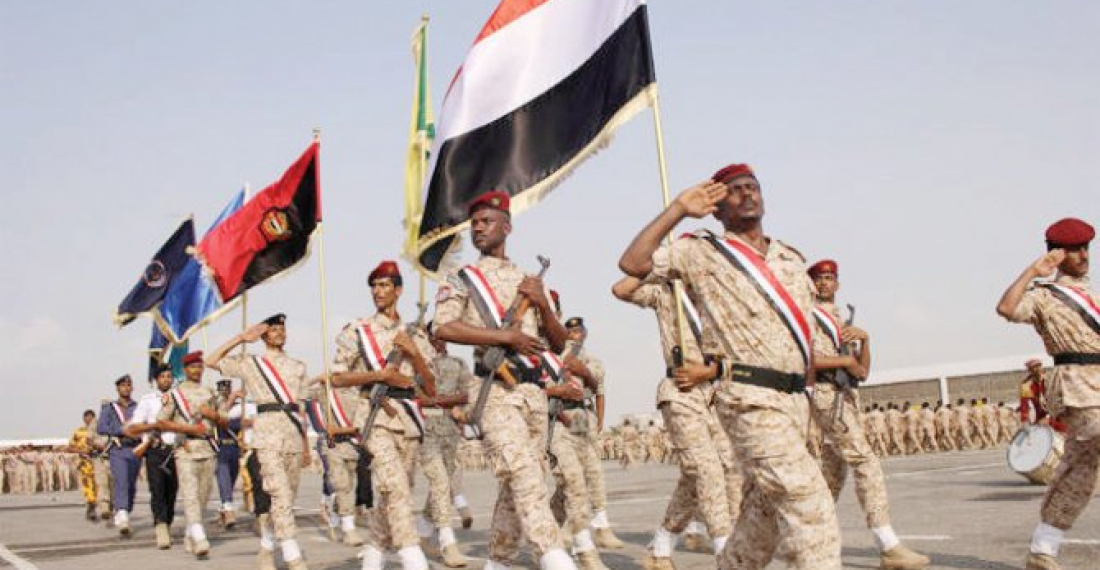Fighting has broken out across different parts of Yemen after Houthi rebels, who at the moment control large chunks of the country, including the capital, Sanaa, refused to agree to a renewal of a UN brokered truce which lapsed on Sunday (2 October).
The fiercest battles took place outside the central city of Marib and in Al-Fakher area of Dhale province, where the Houthis barraged government forces with mortar rounds, cannonballs, tanks and drones fitted with explosives, an army official told Arab News.
Just minutes after the truce expired on Sunday night, the Houthis began shelling government soldiers with heavy weapons and drones in the area of Al-Baleq mountain, south of Marib. After that, they advanced on the ground in an effort to take control of the hilly territory that overlooks the city.
At the same time, other Houthi fighters launched attacks on government forces in Al-Kasarah, Raghwan and Mas, west of Marib.
The attacks sparked fierce fighting with loyalists, who were able to push them back.
Heavy fighting also erupted in Al-Fakher in Dhale, where pro-independence southern troops said they had repelled Houthi attacks on their positions soon after the truce expired.
There were also sporadic exchanges of heavy machine-gun fire between government troops and the Houthis outside the besieged city of Taiz.
UN Special Envoy for Yemen Hans Grundberg said on Sunday that the UN-brokered truce, which went into effect on April 2 and was renewed twice, would not be renewed a third time. He thanked the Yemeni government for “positively” cooperating with his proposals to end the war. A few hours before the announcement, Grundberg told Rashad Al-Alimi, the president of Yemen’s Presidential Leadership Council, that the Houthis had rejected his latest proposal to extend the truce.
The failure to renew it sparked outrage and criticism, primarily directed at the Houthis, as the truce has significantly reduced violence in Yemen, allowed Sanaa airport to reopen and made it possible for dozens of fuel ships to dock at Hodeidah port.
Yemeni Prime Minister Maeen Abdul Malik Saeed condemned the Houthis for failing to renew the truce and urged the international community to abandon its soft policy toward the Houthis and take aggressive measures to punish them for sabotaging peace efforts.
“Appeasement policy (from the international community) does not increase the likelihood of peace and instead encourages the Houthis to become more obstinate,” he was quoted as saying by official media, adding that the Houthis interpreted concessions and appeals to them as signs of weakness.
“Whenever an opportunity for peace arises, the Houthi militia, backed by the Iranian regime, chooses to squander it by choosing to go to war,” Saeed said.
April’s truce had originally established a partial opening of the Houthi-controlled Sanaa airport and the key Red Sea port of Houthi-held Hodeidah, with the ensuing months seeing flights resume from the airport for the first time since 2016,
The truce also called for the lifting of a Houthi blockade on Taiz, the country’s third largest city. But little progress has been made there, after talks aimed at reopening local roads stalled.
Another sticking point has been the funding of the salaries of public employees. Many of them have not received salaries for years.
Ahmed Awad bin Mubarak, the Yemeni government’s foreign minister, blamed the Houthis for the end of the truce. “The government made many concessions to extend the truce,” he told the pan-Arab satellite channel Al-Hadath.
For their part, the Houthis said discussions around the truce had reached a “dead end”. They want to see the full and unrestricted opening of the Sanaa airport, and the lifting of the entire blockade on Hodeidah.
There is also fear that the end of the truce will also renew Houthi attacks against neighbouring Arab countries. The Houthi military spokesman, Yahya Saree, has already issued a warning to Saudi Arabia and the UAE, which have been targeted in the past with missile attacks. “The [Houthi] armed forces give oil companies operating in the UAE and Saudi Arabia an opportunity to organise their situation and leave,” Saree tweeted.
source: commonspace.eu with Arab News (Riyadh), Al Jazeera (Doha) and agencies.







